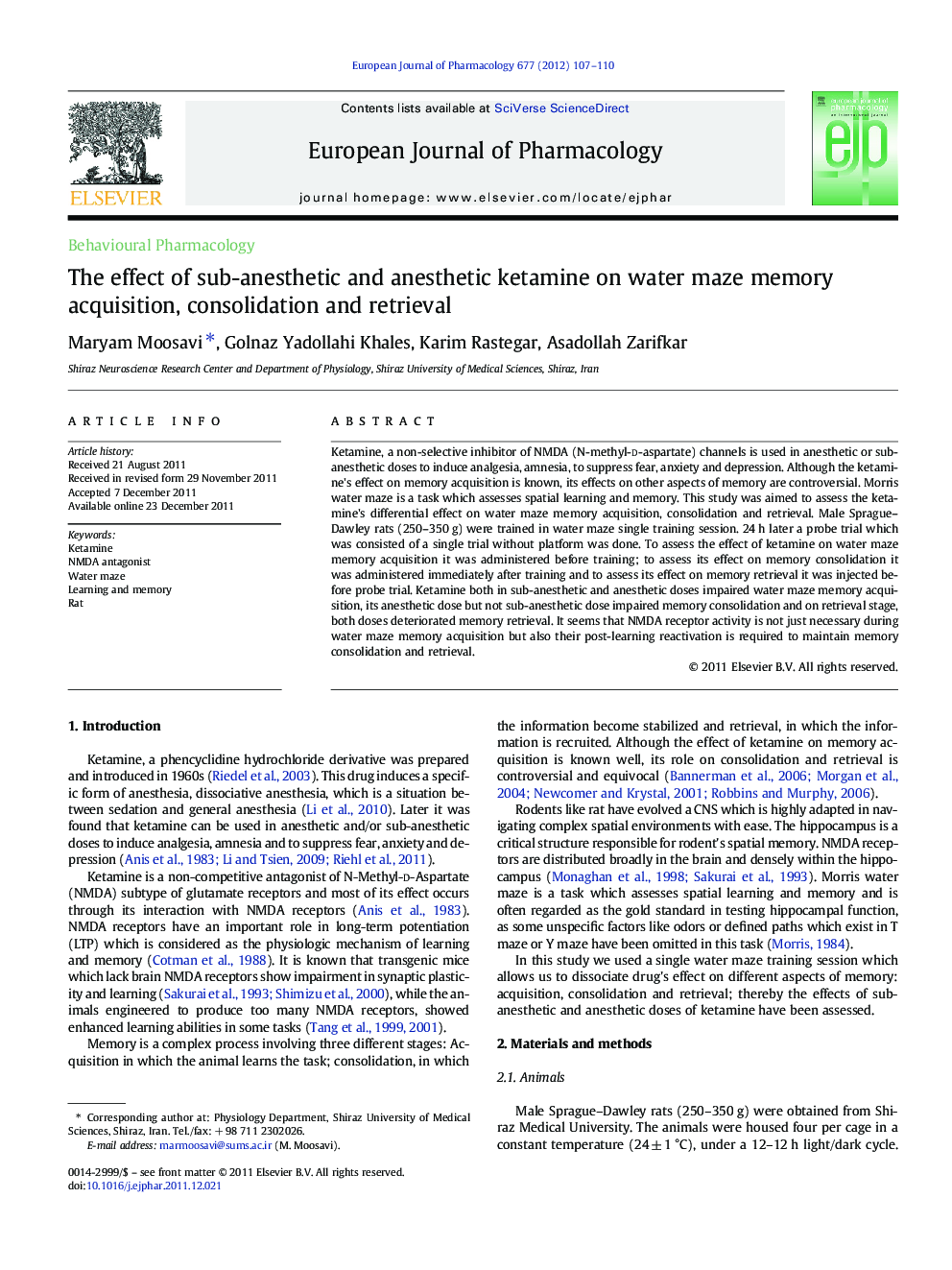| Article ID | Journal | Published Year | Pages | File Type |
|---|---|---|---|---|
| 2532450 | European Journal of Pharmacology | 2012 | 4 Pages |
Ketamine, a non-selective inhibitor of NMDA (N-methyl-d-aspartate) channels is used in anesthetic or sub-anesthetic doses to induce analgesia, amnesia, to suppress fear, anxiety and depression. Although the ketamine's effect on memory acquisition is known, its effects on other aspects of memory are controversial. Morris water maze is a task which assesses spatial learning and memory. This study was aimed to assess the ketamine's differential effect on water maze memory acquisition, consolidation and retrieval. Male Sprague–Dawley rats (250–350 g) were trained in water maze single training session. 24 h later a probe trial which was consisted of a single trial without platform was done. To assess the effect of ketamine on water maze memory acquisition it was administered before training; to assess its effect on memory consolidation it was administered immediately after training and to assess its effect on memory retrieval it was injected before probe trial. Ketamine both in sub-anesthetic and anesthetic doses impaired water maze memory acquisition, its anesthetic dose but not sub-anesthetic dose impaired memory consolidation and on retrieval stage, both doses deteriorated memory retrieval. It seems that NMDA receptor activity is not just necessary during water maze memory acquisition but also their post-learning reactivation is required to maintain memory consolidation and retrieval.
